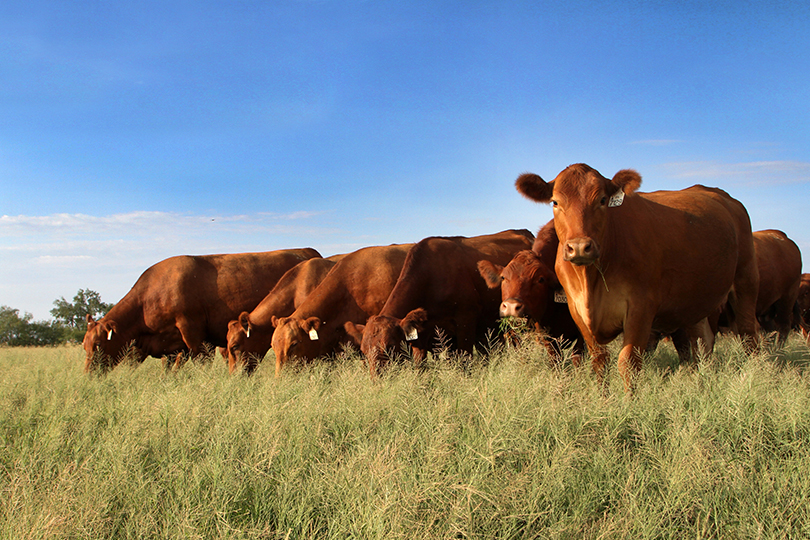By Julie Tomascik
Editor
A proposed bill aims to protect farm and ranch families from overregulation by the Environmental Protection Agency (EPA).
The Livestock Regulatory Protection Act, S. 1475, would prevent the EPA from issuing Clean Air Act Title V permits for emissions like carbon dioxide, nitrogen oxide, water vapor or methane that result from livestock production.
Agricultural groups, including Farm Bureau, urged support for the bipartisan bill during a Senate Committee on Environment and Public Works hearing.
American Farm Bureau Federation (AFBF) Vice President Scott VanderWal testified before the committee on Sept. 7, highlighting environmentally-friendly innovation in agriculture.
“America’s farmers and ranchers play a leading role in promoting soil health, conserving water, enhancing wildlife, efficiently using nutrients and caring for their animals,” VanderWal said. “For decades, they have embraced innovation thanks to investments in agricultural research and adopted climate-smart practices to improve productivity, enhance sustainability and provide clean and renewable energy.”
He noted greenhouse gas emissions in the livestock sector continue to decrease and make up less than 4% of overall emissions in the U.S. Passing this legislation would give farmers and ranchers certainty that they would not be subjected to more regulatory overreach.
“Therefore, our livestock producers should not be subject to onerous regulations and costly permit fees for their animals’ emissions, which could ultimately lead to higher food costs for consumers and less innovation in our industry,” he said. “Voluntary, incentive-based programs, rather than command and control regulation from the EPA, should be the policy of the United States, which is why S. 1475, the Livestock Regulatory Protection Act, is so important.”
Agricultural research and voluntary stewardship investments and practices, some of which are outlined in the farm bill, have helped farmers and ranchers strengthen their stewardship efforts.
“We have seen a 26% reduction in per-unit emissions of GHGs for our dairy industry, while milk production is up 48%; a 20% reduction in swine with an 80% increase in pork production; and close to a 10% drop for our cattle producers with an 18% increase in our production of beef,” he said. “Farmers and ranchers are pioneers of sustainability, and any policy debate should recognize their contributions, efficiency gains and the considerable impact of their carbon sequestration efforts.”
The bill was introduced by Sen. John Thune (R-South Dakota) and sponsored by Sens. Kyrsten Sinema (D-Ariz.), John Boozman (R-Ark.) and Mark Kelley (D-Ariz).
The Senate committee will now need to vote on the bill before sending it to the full Senate for consideration.

